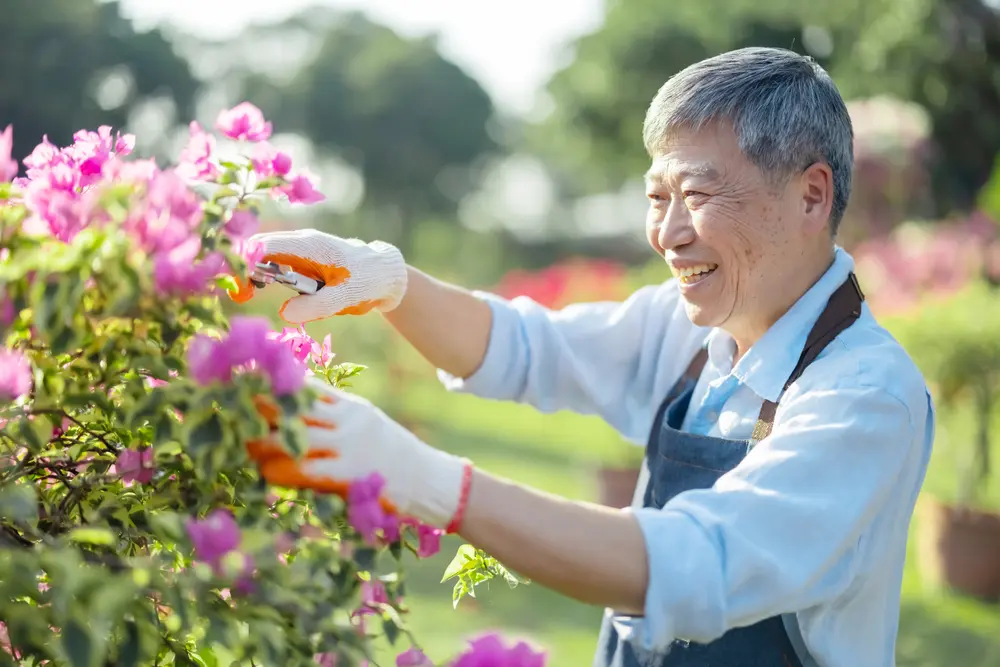
Top Health Benefits of Gardening for Seniors
There’s something about being outside and digging in the dirt that just feels right. The sun on your skin. The smell of working in the rich dark soil. The anticipation of watching what you’ve planted grow and bloom. There’s even a part of pulling weeds that can be satisfying. But did you know there are also health benefits of gardening for seniors that go beyond just your feelings of enjoyment? It’s true. This blog post will discuss why getting your hands dirty can be good for you.
Cultivating Your Health
- Less stress: If you have high levels of cortisol, also known as the stress hormone, you can feel overwhelmed and anxious. Studies have found gardening can help lower your levels of cortisol, which can alleviate stress and even reduce high blood pressure.
- More happiness: Fresh air can do wonders for your mood and your health. So can sunshine. The sun’s rays cause your body to produce vitamin D and boost the serotonin levels in your brain. Serotonin is a chemical that improves your mood and helps you feel calm and centered.
- Decreased heart disease and stroke risk: Gardening is a moderately intense exercise that can help with burning calories and can count toward the recommended 30 minutes of daily exercise. Plus, being outside in a sunny garden can increase vitamin D levels, which has been shown to reduce the risk of heart disease.
- Better mobility: Working in the garden can help you keep your lesser-used muscles engaged; it’s also a productive way to maintain strength and mobility.
- Improved brain health: Gardening uses critical functions like dexterity, problem-solving, endurance, and sensory awareness, all of which may help reduce your risk of dementia. Spending even a short time in the garden can help you maintain your motor skills and improve your endurance and strength.
- Immune system booster: Studies have shown that Mycobacterium vaccae — a “friendly” bacteria found in garden soil — has been known to alleviate symptoms of allergies, asthma, psoriasis, and even depression.
Safe Gardening Tips
While there are risks with gardening — falls, strained muscles, sunburn — it’s also an adaptable activity that can be modified to meet a variety of abilities. To help you get the most health benefits of gardening for seniors while avoiding injury, here are some things to keep in mind before you head out.
- Get off the ground: Planting in flower pots or raised beds can help prevent back strain and avoid feelings of dizziness (which could cause you to fall).
- Lighten up: Traditional gardening tools and buckets can start to feel heavy. Switch them out for lighter-weight items to ease the physical stress of gardening.
- Don’t feel the burn: Avoid gardening during the hottest part of the day. Wear sunscreen, sunglasses and a wide-brimmed hat. Bring a water bottle to help you stay hydrated.
- Take a seat: Be sure you have somewhere to sit in your garden. Not only will this make your garden more inviting, but it will give you a place to relax and be helpful if you start to feel dizzy or overheated.
Plant the Seeds to a More Fulfilling Lifestyle
As gardeners know, the best way to get your seeds to grow is through thoughtful care and planning. Life, like gardening, requires careful preparation and vigilance. At Trillium Woods, our active senior living community provides you with ample opportunity to blossom and grow. To learn more about all that we have growing on — including our upcoming expansion — contact us here.

